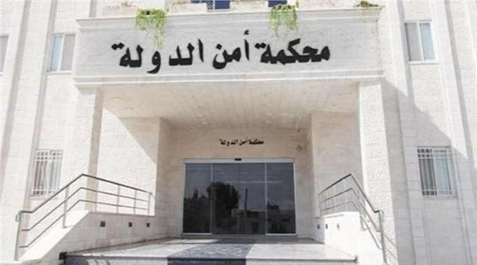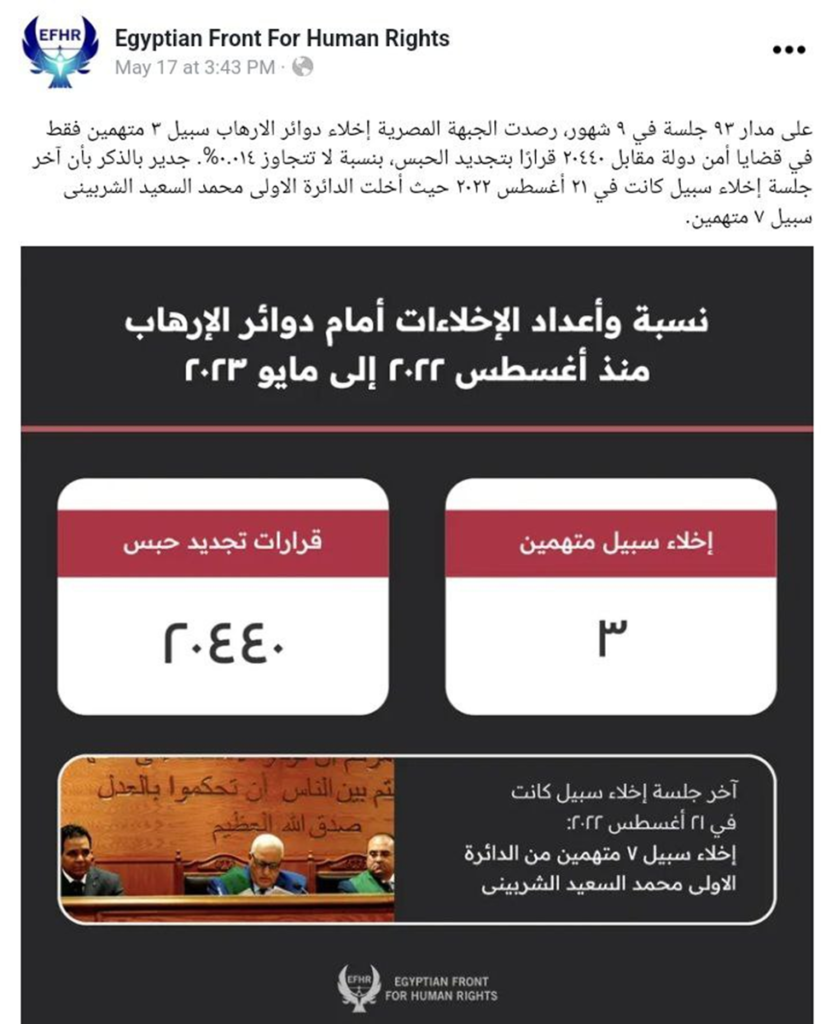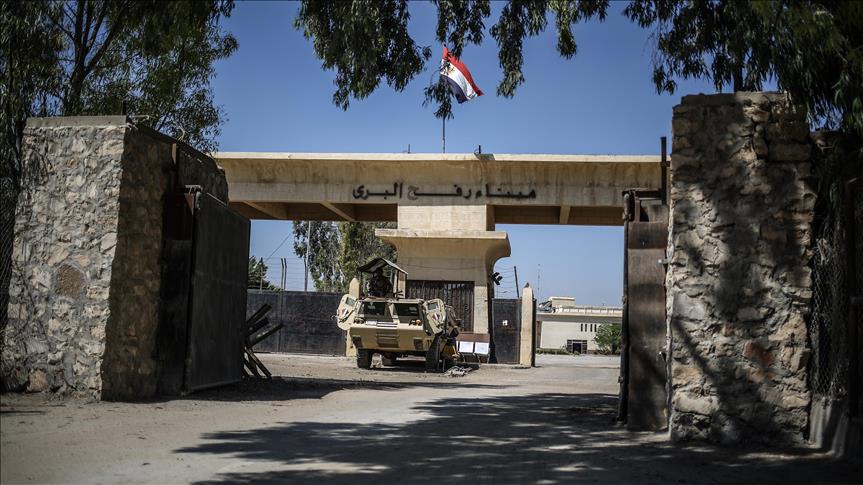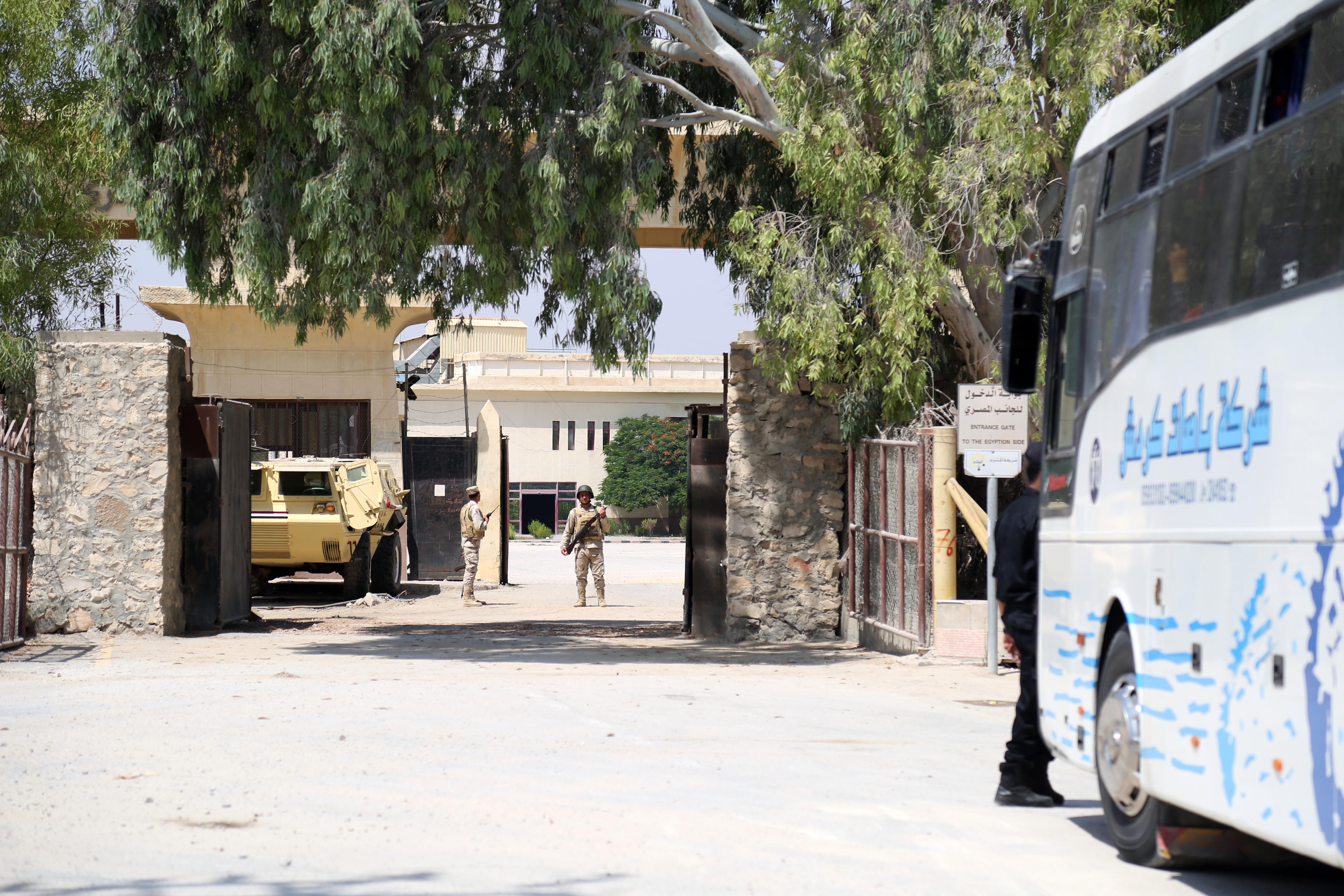
An Egyptian human rights group says that during more than nine months, Egyptian authorities renewed the pre-trial detention of over 20,000 people.
The Egyptian Front for Human Rights (EFHR) has announced that it recorded that over a nine-month period, the Egyptian courts have renewed the pre-trial detention of over 20,000 people on terror related charges.
Throughout this period, Egypt’s general prosecution has only released three people, stated EFHR.
Often, when judges issue decisions to extend prisoners’ pre-trial detention, they do so without presenting credible evidence, without defendants even being in court, and do not allow lawyers to defend their clients.
Amnesty International has previously said that Egyptian authorities routinely use pretrial detention to punish perceived political opponents, activists, or human rights defenders.
Terror-related charges are often leveled against opposition members, former politicians and businessmen, and women who have found their assets frozen, that they have been banned from traveling, and some have been given lengthy prison sentences.
Human rights lawyer Mohamed El-Baqer has spent over three years in prison, has been added to the terror list, and when he is released, it will possibly be debarred and banned from traveling.
The recent arrest of El-Baqer’s wife, who wrote on Twitter that he had been beaten, gagged, and stripped of his clothes whilst in prison, underscored the harsh conditions that political prisoners are held in.
El-Baqer’s pretrial detention was renewed many times before he was eventually sentenced to four years in prison by the Misdemeanors Emergency State Security Court for “spreading false news undermining national security.”
The practice of renewing the pre-trial detention of prisoners is known as rotation and is used by authorities to keep people behind bars beyond the two-year legal limit, which applies for most sentences.

Countless and unjustified renewals of pre-trial detention violate defendants’ rights to due process.
On the other hand, the Egyptian Front for Human Rights announced that it’s following up the Egyptian authorities’ continued imprisonment of citizens in state security cases against the backdrop of exercising their right to comment and criticize government policies that led to the deterioration of economic conditions and their impact on living conditions.
On Tuesday, the EFHR referred to “the Supreme State Security Prosecution’s alignment with the National Security Sector in directing baggy charges against these citizens on the basis of security records, instead of standing against arbitrariness and infringement of freedoms.”
The Egyptian Front had previously monitored the imprisonment of at least eight people, on the background of their criticism of economic conditions, since the beginning of the year, where they were subjection to enforced disappearance in National Security headquarters for periods of 40 days, and then their appearance in the State Security Prosecution on charges of joining a terrorist group, misusing means of social media, and dissemination of false news and statements, within the framework of cases already handled by the Supreme State Security Prosecution, such as cases 95 of 2023, 2515 of 2022, and 184 of 2023.
EFHR also stated that “these practices flagrantly contradict the provisions of the Egyptian constitution that guarantee citizens the right to express their opinions, as Article 65 stipulates that freedom of thought and opinion is guaranteed, and every person has the right to express his opinion orally, or in writing, or by photographing, or other means” of expression and publication.
There are some 60,000 political prisoners in Egypt who are systematically tortured and denied adequate medical care.
According to a report by Amnesty International, Egypt is one of the top four executioners worldwide.



